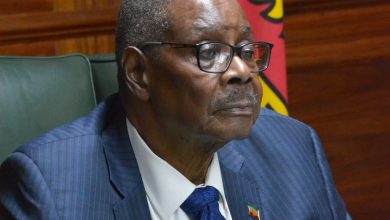MLS, others want power transition tightened
Malawi Law Society (MLS) and other legal minds have suggested the need to tighten provisions on power transition to avoid abuse of power by an outgoing president.
The amended Constitution provides that a president-elect should be sworn in seven days after being declared winner by Malawi Electoral Commission (MEC) and not later than 30 days.
In separate interviews, the stakeholders agreed that while the incumbent continues to exercise all powers during the said seven days or 30 days, caution need to be exercised to ensure that there is no abuse.
Under Section 81(3) of the Constitution, a person elected to be President or First Vice-President shall not be sworn into office until after the expiry of seven days but before the expiry of 30 days from the date the election result is declared.

The arrangement is a departure from the long held practice in Malawi where there were no restrictions until the law was amended in 2023.
In a written response yesterday, MLS honorary secretary Francis M’mame said the incumbent in the initial seven-day period and until the very moment the new President is sworn-in, the incumbent remains the lawful head of State and government and Commander-in-Chief of the Defence Force.
He said this is firmly grounded in Section 83(1) of the Constitution which states that a President continues in office until a successor is sworn in.
Said M’mame: “It is generally understood that the incumbent should avoid making significant decisions that might prejudice the incoming administration or alter the status quo substantially.
“In practice, the level of control can depend on various factors, including the incumbent’s willingness to cooperate and the specific circumstances of the transition.”
But M’mame said to prevent any potential for ambiguity or conflict, there is need for legal reform to specify what actions the incumbent can and cannot take during the transition period.
He also suggested establishment of formal guidelines or protocols for the transition process, including information sharing, access to government resources and cooperation between the outgoing and incoming administrations.
In a separate interview, Catholic University of Malawi dean of law James Kaphale agreed with MLS, saying that within this period, the incumbent still exercises the power until the newly elected president is sworn in.
He said: “Mind you there is no power vacuum as the government machinery still grinds in full force. You may remember that even when Cabinet is dissolved all government powers rest in the Office of the Presidency and so nothing stops.
“There is a need for review of the law to make transition of power very clear.”
On his part, private practice lawyer Khumbo Soko said unlike other constitutions such as the Kenyan one, the powers of the President are not impaired during the transition.
“Of course political prudence may require restraint. But as we saw even with last minute pardons that were issued by Joe Biden [in the US], one remains a President even with just a few seconds before your successor takes office,” he observed.
During the announcement of presidential election results on Wednesday night, MEC chairperson Annabel Mtalkinmanja said according to law, the President-elect and Vice-President-elect cannot take the oath of office before seven days lapse and not later than 30 days from Wednesday.





